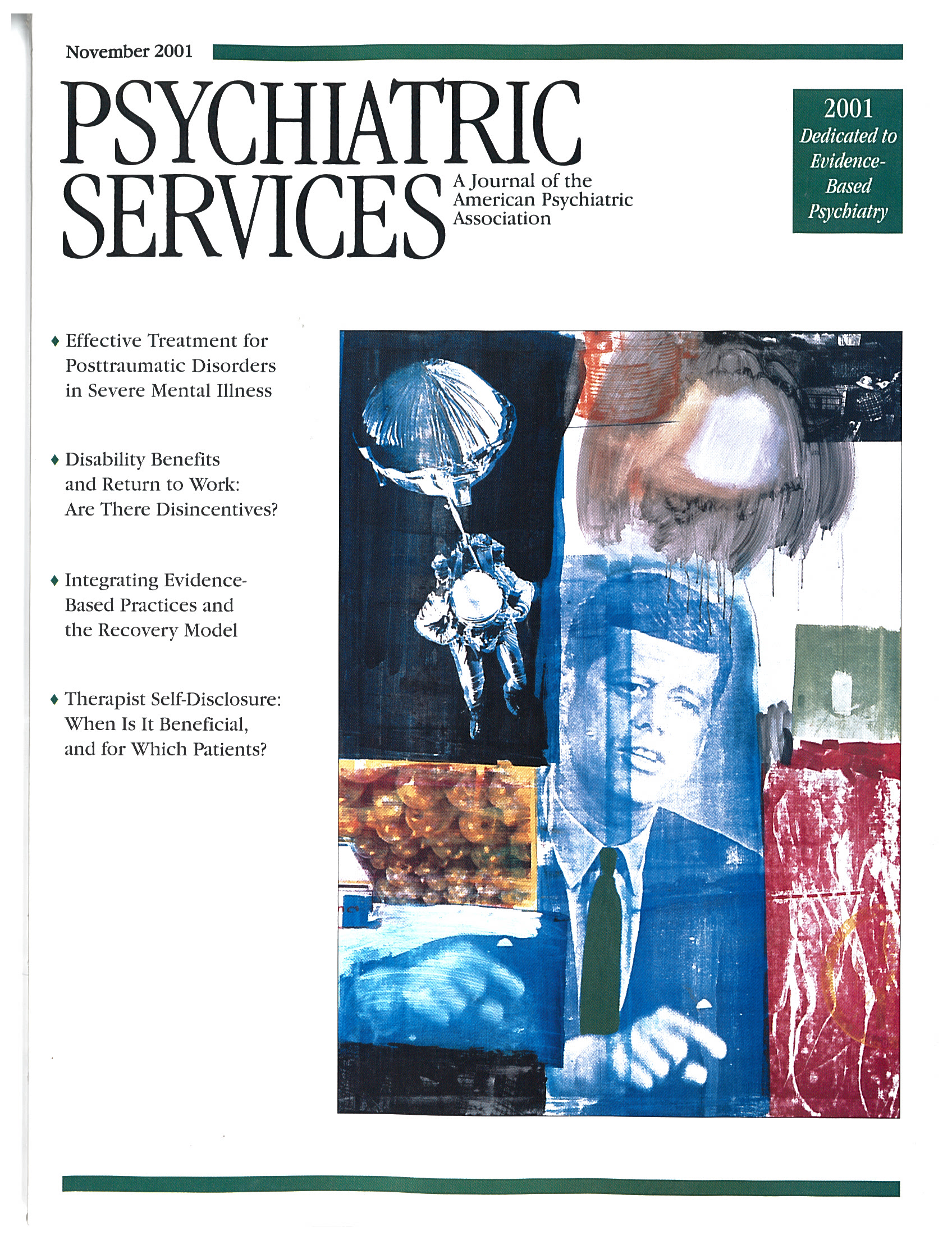Evidence-Based Practices
In this month's issue, Psychiatric Services continues its series on evidence-based practices with two articles. In the first, Stanley D. Rosenberg, Ph.D., and his colleagues review evidence that exposure to trauma is endemic among people with severe mental illness and that posttraumatic disorders are often unassessed or misdiagnosed in this population, even though valid assessment techniques are available. They outline a research agenda for ensuring that effective treatments are developed and broadly disseminated (see page 1453). In the second article, consumer advocate Frederick J. Frese, III, Ph.D., and his coauthors argue that "provider-centric" approaches to implementing evidence-based practices that fail to integrate the recovery model will not win the support of a substantial proportion of consumers and their advocates. They suggest ways that policy makers and providers can better integrate such practices and the recovery model (see page 1462). Robert E. Drake, M.D., Ph.D., and Howard H. Goldman, M.D., Ph.D., are editors of this series, which began in January 2001 and will continue into the coming year.
Recovery From Depression
Although depression is often considered a time-limited condition, Richard C. Shelton, M.D., and Andrew J. Tomarken, Ph.D., point out that many depressed persons do not recover rapidly and completely and thus remain functionally impaired. These authors describe a method for evaluating residual symptoms of depression that is based on three distinct dimensions of mood disorders: somatic anxiety, anhedonia or low positive affect, and general distress. They review the mechanisms of action of various antidepressants and propose a therapeutic heuristic for predicting the effects of different classes of medications on the residual symptoms of depression, with the goal of ensuring recovery for a larger proportion of patients (see page 1469).
Disability Compensation and Return to Work
Do benefit payments from disability compensation programs have the unintended effect of reducing people's motivation to return to work? Dennis Drew, M.A., and his colleagues examined participation and outcome data from a sample of more than 22,500 individuals in a work therapy program operated by the Veterans Health Administration. About 30 percent were receiving some form of disability compensation. The researchers found that those receiving benefits worked substantially fewer hours in the program, earned less income, had a higher dropout rate, and were less likely to be competitively employed at discharge. The amount of disability income was negatively related to participation and outcomes (see page 1479).
Reexamining Therapist Self-Disclosure
The psychopathology committee of the Group for the Advancement of Psychiatry reports the results of a reexamination of therapist self-disclosure in light of two decades of changes in medicine, mental health care, and society. The authors discuss the deliberate use of self-disclosure in strengthening the therapeutic relationship. They conclude that self-disclosure may be underused or misused because it lacks a framework. They describe the benefits of self-disclosure for some subgroups of patients in specific types of treatment and treatment settings (see page 1489).
Risk Transfer in Carve-Out Contracts
In 2000, about 68 percent of Americans with health insurance received behavioral health services through carve-out arrangements, in which managed care organizations contract for the provision of these services with managed behavioral health organizations. As Deborah W. Garnick, Sc.D., and her coauthors point out, such contracts vary substantially in the functions and financial risks transferred to the carve-out organization and the standards to which it is held accountable. The authors examined data from a nationally representative sample of three basic managed care products—health maintenance organizations, preferred provider organizations, and point-of-service plans—offered by 434 managed care organizations in 60 market areas. They found that more than 90 percent of managed care organizations transfer all major responsibilities for patient care to the carve-out companies, regardless of product type. The degree of risk transferred varied by product type. Eighty percent of the products failed to tie financial incentives to performance standards (see page 1502).
Briefly Noted…
• In the Practical Psychotherapy column, Marcia Kraft Goin, M.D., Ph.D., offers suggestions to clinicians about how to avoid assaults by patients and what they should do if they are assaulted (see page 1449).
• A psychiatrist and a lawyer recommend steps that treating psychiatrists can take to avoid mistakes when they are summoned to the courtroom to serve as expert witnesses (see page 1526).

